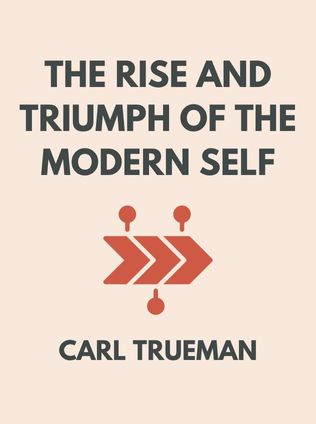
The Rise and Triumph of the Modern Self
Cultural Amnesia, Expressive Individualism, and the Road to Sexual Revolution
By Carl Trueman
Published 01/2020
About the Author
Carl Trueman is a distinguished professor of biblical studies and ecclesiastical history, widely respected for his rigorous and incisive analysis of contemporary culture through the lens of Christian thought. He has written extensively on the intersections of theology, philosophy, and history, contributing to a deeper understanding of how modern ideas have evolved and how they conflict with traditional Christian values. Trueman’s work is not just an academic exercise but a passionate endeavor to provide Christians with the tools to navigate and respond to the cultural shifts that challenge their faith.
Trueman's scholarly background, combined with his commitment to the Christian faith, gives him a unique perspective on the cultural and intellectual movements that have shaped modern Western society. His work often delves into the philosophical underpinnings of contemporary issues, tracing their roots back to historical developments that many may overlook. In "The Rise and Triumph of the Modern Self", Trueman brings this expertise to bear on one of the most pressing issues facing Christians today: the radical transformation of how the self is understood and expressed in modern culture.
Main Idea
The central thesis of Carl Trueman’s "The Rise and Triumph of the Modern Self" is an exploration of how the modern conception of selfhood has dramatically shifted, leading to profound changes in societal norms, particularly concerning identity, sexuality, and morality. Trueman argues that these shifts did not occur overnight but are the result of centuries of philosophical, literary, and cultural developments. He traces this transformation from Enlightenment thinkers to modern-day activism, highlighting how the modern self has come to be understood as an inward, expressive, and malleable entity, fundamentally opposed to traditional Christian conceptions of identity.
Trueman's argument is deeply rooted in a historical analysis that seeks to uncover the origins of contemporary ideas. He contends that the current cultural landscape, with its emphasis on personal identity and sexual expression, is the culmination of a long process that began with a shift in how individuals perceive themselves. This shift, according to Trueman, has had far-reaching implications, not only for personal identity but also for social institutions like marriage, the family, and religious communities.
Table of Contents
- The Modern Self: Definition and Characteristics
- The Historical Roots of Modern Selfhood
- The Sexualization of the Self
- The Impact on Christian Morality and Society
- Guidelines for Christians in the Modern Age
The Modern Self: Definition and Characteristics
Trueman begins by defining what he calls the "modern self." Unlike traditional Christian views that see the self as rooted in external divine laws and communal relationships, the modern self is primarily inward, expressive, and self-determined. It is psychological rather than moral, with its authenticity found in the expression of inner feelings and desires rather than in adherence to external norms.
"The modern self is internal. When someone wants to 'find themselves,' modern culture encourages them to look inward. Someone finds their 'true self' in their deepest feelings and intuitions. This means that selfhood is primarily psychological." - Carl Trueman
The modern self is also characterized by its expressive nature. Authenticity is achieved by publicly sharing one's inner life, making self-expression a moral imperative in itself. The modern world celebrates those who live 'authentically,' often equating authenticity with the courage to express one’s deepest emotions and desires, even when they contradict societal norms or traditional values. This has led to a culture where personal experience is often seen as the highest form of truth.
Moreover, the modern self is malleable and can be shaped by individual choices, whether in terms of lifestyle, relationships, or even gender and sexuality. The idea that one can 'reinvent' oneself is a hallmark of contemporary culture, which encourages individuals to explore and define their own identities rather than conform to predefined roles. This has led to the widespread belief that identity is not something given or fixed but something that can be constructed and reconstructed over time.
Sign up for FREE and get access to 1,400+ books summaries.
You May Also Like
Freakonomics
A Rogue Economist Explores the Hidden Side of Everything
By Steven D. Levitt and Stephen J. Dubner



















